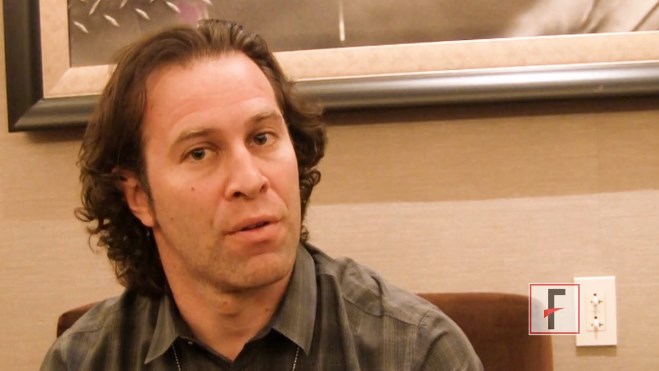User login
LAS VEGAS – There’s no easy fix for fibromyalgia, a problem that seems to lurk in the gap between mind and body.
Pharmaceuticals don’t work too well, and patients usually stop taking them after a while. Physicians are often at a loss for what to try next.
Part of the problem, at least for now, is that fibromyalgia is a poor fit for the medical model; it may be time to reconsider it from a broader perspective, according to Dr. Brian Walitt, director of clinical pain research at the National Center for Complementary and Integrative Health, in Bethesda, Md. He shared his insights – and a few tips for helping sufferers – in a video interview at the annual Perspectives in Rheumatic Diseases, held by Global Academy for Medical Education.
Global Academy for Medical Education and this news organization are owned by the same parent company.
The video associated with this article is no longer available on this site. Please view all of our videos on the MDedge YouTube channel
LAS VEGAS – There’s no easy fix for fibromyalgia, a problem that seems to lurk in the gap between mind and body.
Pharmaceuticals don’t work too well, and patients usually stop taking them after a while. Physicians are often at a loss for what to try next.
Part of the problem, at least for now, is that fibromyalgia is a poor fit for the medical model; it may be time to reconsider it from a broader perspective, according to Dr. Brian Walitt, director of clinical pain research at the National Center for Complementary and Integrative Health, in Bethesda, Md. He shared his insights – and a few tips for helping sufferers – in a video interview at the annual Perspectives in Rheumatic Diseases, held by Global Academy for Medical Education.
Global Academy for Medical Education and this news organization are owned by the same parent company.
The video associated with this article is no longer available on this site. Please view all of our videos on the MDedge YouTube channel
LAS VEGAS – There’s no easy fix for fibromyalgia, a problem that seems to lurk in the gap between mind and body.
Pharmaceuticals don’t work too well, and patients usually stop taking them after a while. Physicians are often at a loss for what to try next.
Part of the problem, at least for now, is that fibromyalgia is a poor fit for the medical model; it may be time to reconsider it from a broader perspective, according to Dr. Brian Walitt, director of clinical pain research at the National Center for Complementary and Integrative Health, in Bethesda, Md. He shared his insights – and a few tips for helping sufferers – in a video interview at the annual Perspectives in Rheumatic Diseases, held by Global Academy for Medical Education.
Global Academy for Medical Education and this news organization are owned by the same parent company.
The video associated with this article is no longer available on this site. Please view all of our videos on the MDedge YouTube channel
EXPERT ANALYSIS FROM THE ANNUAL PERSPECTIVES IN RHEUMATIC DISEASES
